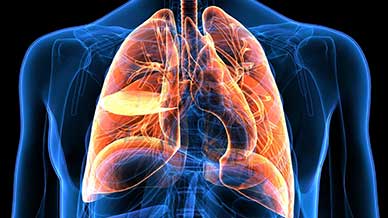New research on saturated fats and heart health has set off a controversy in the medical community. Do saturated fats truly cause heart disease? Or are they really not that bad for you?
Medical advice changes almost by the week. One day we hear that margarine is better, the next day margarine is deadly and butter is the way to go. Sugar similarly has transformed from being a healthy dose of energy to a harbinger of diabetes and metabolic syndrome. Nowhere is this fast and constant shift of opinion so obvious as it is in the area of saturated fats. We have long accepted that they contribute to heart disease and other deadly illnesses. However, new research suggests that this may not be the case. Could we have been wrong about fatty foods like butter and bacon all along?
Saturated Fats and Heart Health
Found in red meat, full-fat dairy products and a variety of processed foods, saturated fat has long been the scapegoat of the nutritional world. Not only is it dense in calories, which can lead to weight gain, but several studies recognized even decades ago that it can clog blood vessels, contributing to both heart attack and stroke.
However, new research is beginning to suggest that the link between saturated fats and heart health may not be as clear as it once appeared. The controversy began anew in 2015 when a study suggested that while saturated fats are bad for the heart, the food compounds that people replace them with may be just as bad.
Is Saturated Fat Actually Bad for You?
Saturated fat and cholesterol are believed to contribute to cardiovascular disease by “clogging” the vessels that move blood around our bodies, similar to the gradual clogging of plumbing that can occur in our home. Because of significant evidence to support this, doctors have recommended for decades that people eat less saturated fat and keep their blood cholesterol numbers low.
A new study, however, shows no connection whatsoever between saturated fat and heart health. Instead, researchers now believe that simple lifestyle changes such as eating wholesome homemade food, getting adequate exercise and controlling stress are healthier than any kind of dietary deprivation. In fact, certain types of high-fat foods, including those rich in plant oils, actually reduce cardiovascular risk. People who eat saturated fats may actually be increasing their heart disease risk simply by eating too many processed items and not enough healthy fats.
However, this remains a controversial study among many doctors and scientists. Leading cardiologists insist that the authors of the recent study finding no correlation between saturated fats and heart disease are guilty of misleadingly compiling data while ignoring studies that prove their theory wrong. These cardiologists point out that the largest and most well-controlled studies have consistently found a link between saturated fats and heart disease for several decades and counting.
Lifestyle Choices for Whole Body Health
 Although there is significant controversy about the role of saturated fat in heart disease, most doctors and experts agree on several lifestyle changes intended to improve cardiovascular health. Eating a plant-based, whole foods diet is one of the best things you can do for your health, as it cuts back on “bad” fats and additives while ensuring that you get enough vitamins and healthy fats. Taking a walk, as the study authors suggested, also is a lifestyle decision that will improve heart health and mental health at the same time. Getting enough sleep—while difficult for many people in the modern world—also is generally agreed to be a great decision for heart health.
Although there is significant controversy about the role of saturated fat in heart disease, most doctors and experts agree on several lifestyle changes intended to improve cardiovascular health. Eating a plant-based, whole foods diet is one of the best things you can do for your health, as it cuts back on “bad” fats and additives while ensuring that you get enough vitamins and healthy fats. Taking a walk, as the study authors suggested, also is a lifestyle decision that will improve heart health and mental health at the same time. Getting enough sleep—while difficult for many people in the modern world—also is generally agreed to be a great decision for heart health.
Promoting Cardiovascular Health the Natural Way
If you want to give your heart an extra health boost, there are many all-natural nutrients and vitamins that have been proven to minimize the risk of cardiovascular disease and protect your heart. Consider adding one of these supplements to your daily regimen:
- omega-3 fatty acids to reduce triglycerides, lower blood pressure and prevent atherosclerosis
- folic acid to reduce levels of homocysteine, a natural product of the human body that can contribute to cardiovascular disease
- B vitamins, which also reduce levels of homocysteine and contribute to better metabolism in general
- calcium, which is essential for cardiac muscle function
- magnesium for optimal function of nerves that control the cardiovascular system
- coenzyme Q10, an antioxidant that protects heart and blood vessel tissues from oxidative damage
- L-carnitine that reduces abnormal heart rhythms and the development of angina
- grapeseed extract, which contains flavonoids that have been found to protect the heart and reduce cardiovascular disease
Is butter really that bad for you? New research calls this assumption into question. However, all data indicates that our hearts will be healthier if we eat a less-processed diet, get plenty of fresh air and take supplements that provide ingredients with proven cardiovascular benefits. Leading a healthy and well-balanced lifestyle is key to living a long and happy life.
 There is currently no known connection between vitamin C deficiency and higher rates of cancer. However, this topic has yet to be studied extensively. It intuitively makes sense that getting enough of a cancer-fighting antioxidant may help to prevent cancer from developing in the first place. Because getting enough vitamin C is
There is currently no known connection between vitamin C deficiency and higher rates of cancer. However, this topic has yet to be studied extensively. It intuitively makes sense that getting enough of a cancer-fighting antioxidant may help to prevent cancer from developing in the first place. Because getting enough vitamin C is  Exactly what nutrients and vitamins help to sustain good vision? Several research studies have given us a solid idea about which natural ingredients work best. Macular degeneration is one of the major causes of vision loss associated with aging. Over years and decades, most people develop yellow deposits in their maculae, that are called drusen. We know from several studies that antioxidant vitamins can protect against much of the damage from macular degeneration by preventing these deposits of drusen. These antioxidants include vitamins such as vitamin C, vitamin E, beta carotene, zinc and copper. In fact, when these vitamins are taken together, they have been found to
Exactly what nutrients and vitamins help to sustain good vision? Several research studies have given us a solid idea about which natural ingredients work best. Macular degeneration is one of the major causes of vision loss associated with aging. Over years and decades, most people develop yellow deposits in their maculae, that are called drusen. We know from several studies that antioxidant vitamins can protect against much of the damage from macular degeneration by preventing these deposits of drusen. These antioxidants include vitamins such as vitamin C, vitamin E, beta carotene, zinc and copper. In fact, when these vitamins are taken together, they have been found to  Why all this focus on vision? Most people wish to keep clear eyesight as long as we can. In addition, March is Workplace Eye Wellness Month, a time to focus on preventing eye damage and preserving good vision. In addition to
Why all this focus on vision? Most people wish to keep clear eyesight as long as we can. In addition, March is Workplace Eye Wellness Month, a time to focus on preventing eye damage and preserving good vision. In addition to  What does this mean for people who are not high-performance athletes? You may be having trouble building muscle mass or suffering more soreness than usual because of not getting enough of this important vitamin. Even in people who had no other health effects, the lack of vitamin D manifested itself in a higher rate of muscle injuries. Taking vitamin D may be as important to building strong muscles as eating enough protein.
What does this mean for people who are not high-performance athletes? You may be having trouble building muscle mass or suffering more soreness than usual because of not getting enough of this important vitamin. Even in people who had no other health effects, the lack of vitamin D manifested itself in a higher rate of muscle injuries. Taking vitamin D may be as important to building strong muscles as eating enough protein. Resveratrol has recently become popular due to its
Resveratrol has recently become popular due to its  How can a simple grape extract help promote healthy respiratory aging and protect against certain lung concerns? The antioxidant effects of resveratrol are believed to be one of its major benefits. In one study, when mice were given inhaled resveratrol, they saw
How can a simple grape extract help promote healthy respiratory aging and protect against certain lung concerns? The antioxidant effects of resveratrol are believed to be one of its major benefits. In one study, when mice were given inhaled resveratrol, they saw  People with asthma have
People with asthma have  There are several natural supplements that also may be beneficial for people who suffer from asthma and other respiratory concerns. Omega-3 fatty acids are currently the supplements with the most evidence backing them. Research on omega-3 for asthma suggests that these fatty acids have
There are several natural supplements that also may be beneficial for people who suffer from asthma and other respiratory concerns. Omega-3 fatty acids are currently the supplements with the most evidence backing them. Research on omega-3 for asthma suggests that these fatty acids have